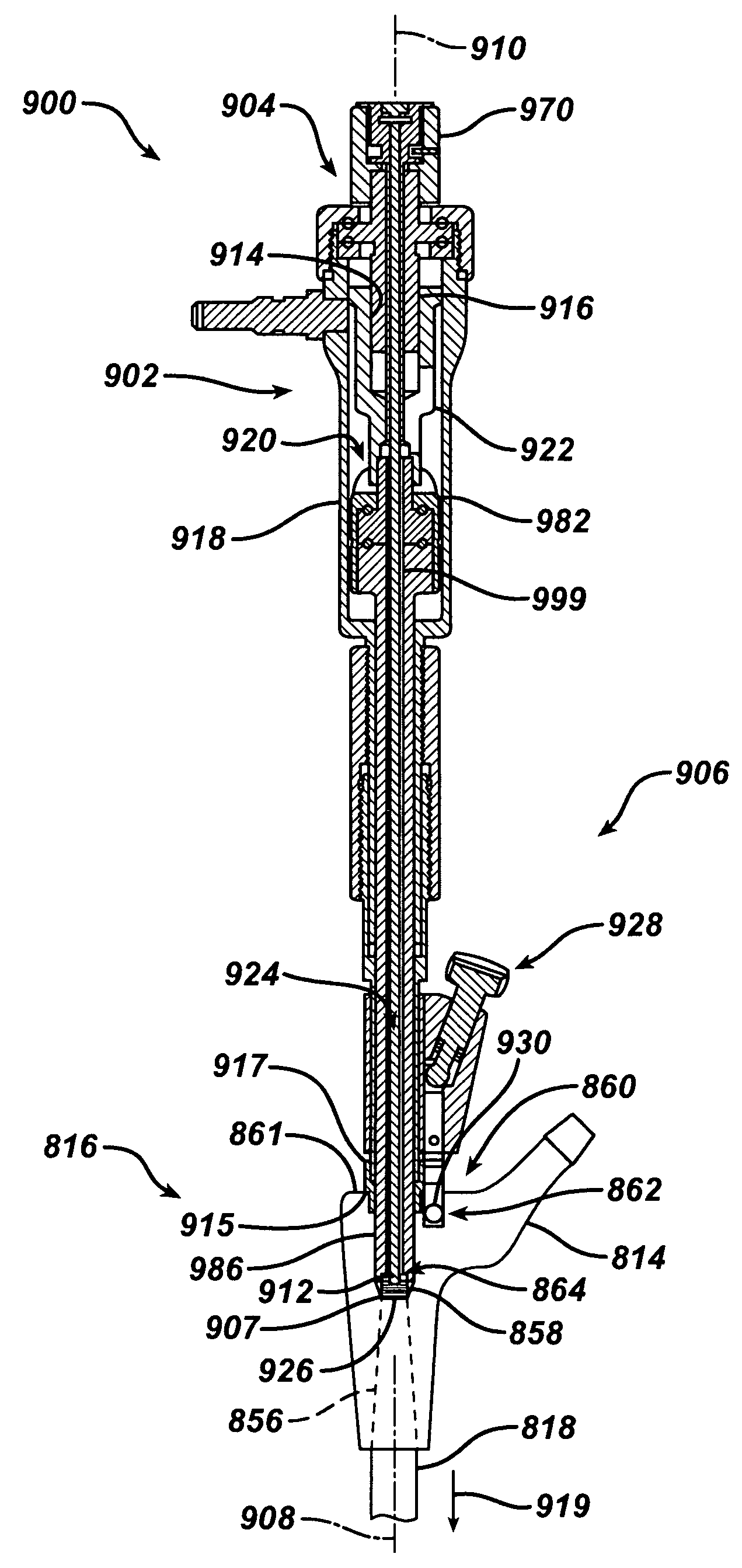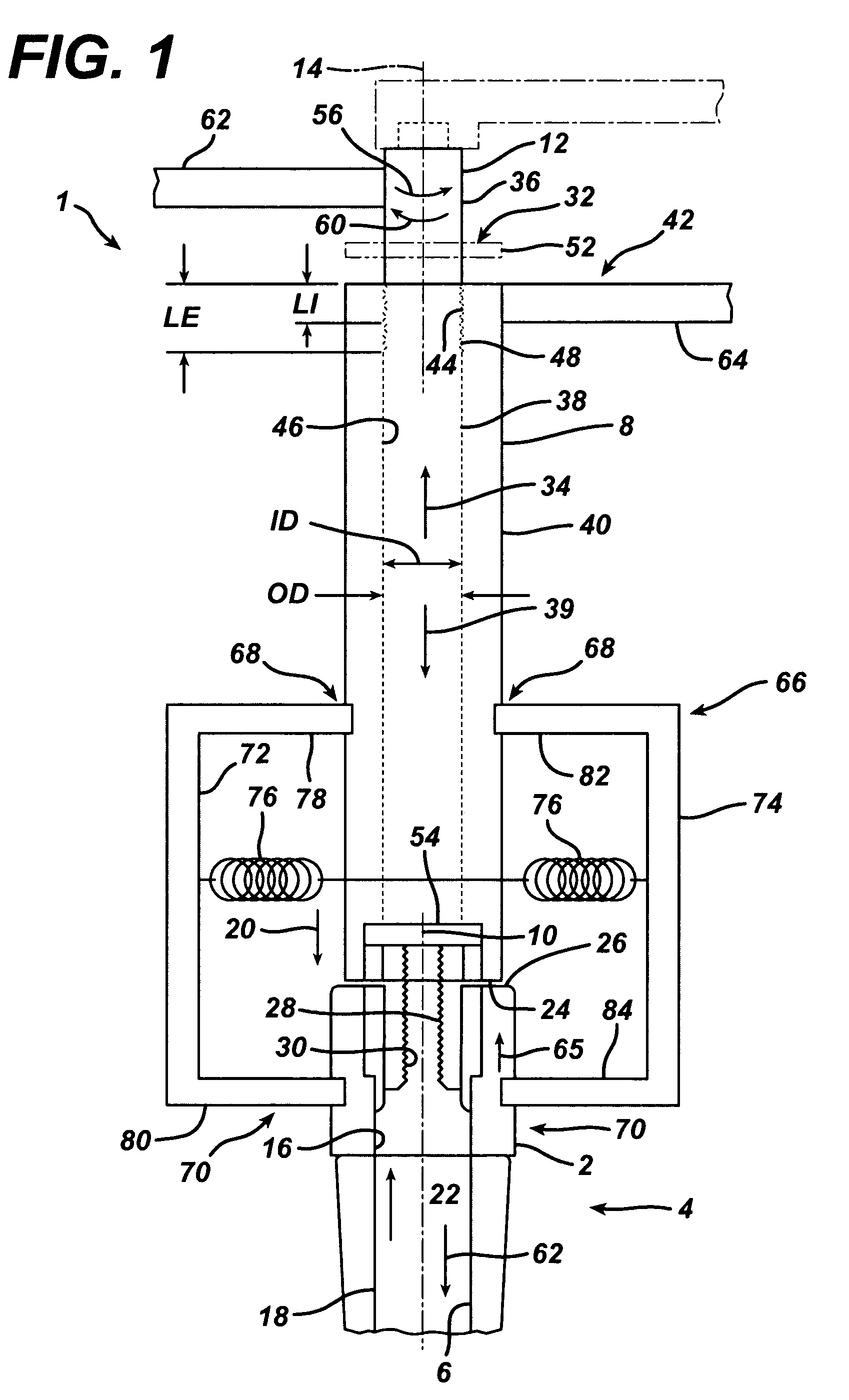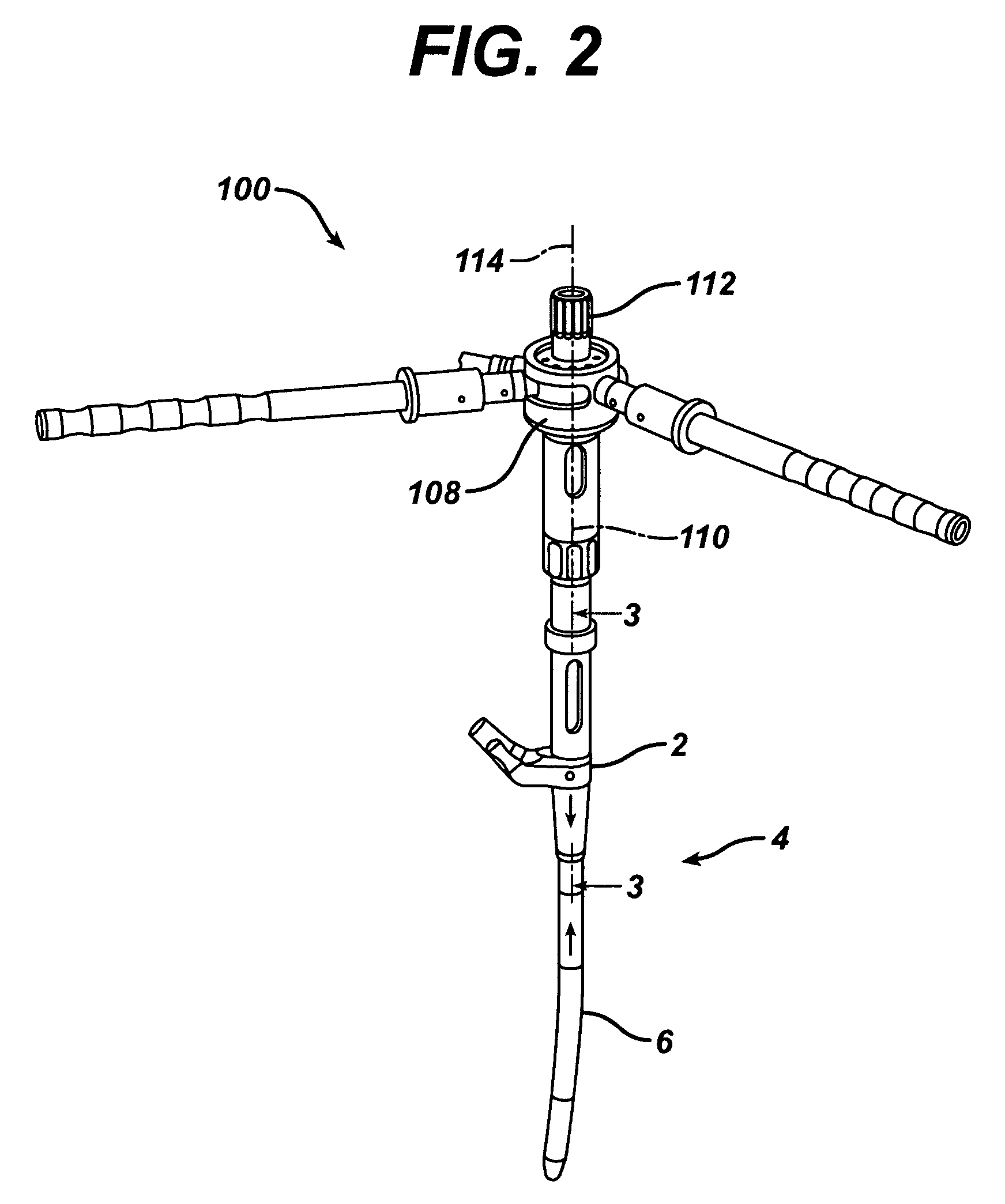Assembly tool for modular implants and associated method
a technology of modular implants and assembly tools, applied in the field of orthopaedic implants, can solve the problems of difficult positioning of the upper portion and hence the head of the prosthesis, the use of a one-piece prosthesis, and the difficulty of precise positioning of the upper portion and the prosthesis, so as to achieve simple optimum ergonomics, facilitate the use of grips, and limit the displacement of instruments
- Summary
- Abstract
- Description
- Claims
- Application Information
AI Technical Summary
Benefits of technology
Problems solved by technology
Method used
Image
Examples
Embodiment Construction
[0129]Embodiments of the present invention and the advantages thereof are best understood by referring to the following descriptions and drawings, wherein like numerals are used for like and corresponding parts of the drawings.
[0130]According to the present invention and referring now to FIG. 1, assembly tool 1 according to the present invention is shown. The assembly tool 1 is used for assembly of a first component 2 of a prosthesis 4 to a second component 6 of the prosthesis 4 for use in joint arthroplasty. The tool 1 includes a first member 8 operably associated with the second component 6. The first member 8 defines a first member longitudinal axis 10 of the first member 8. The tool 1 also includes a second member 12 operably associated with the second component 6. The second member 12 defines a second member longitudinal axis 14 of the second member 12. The second member 12 is adapted to provide relative motion of the second member 12 with respect to the first member 8 when the...
PUM
| Property | Measurement | Unit |
|---|---|---|
| angular orientation surface | aaaaa | aaaaa |
| displacement measuring | aaaaa | aaaaa |
| force measuring | aaaaa | aaaaa |
Abstract
Description
Claims
Application Information
 Login to View More
Login to View More - R&D
- Intellectual Property
- Life Sciences
- Materials
- Tech Scout
- Unparalleled Data Quality
- Higher Quality Content
- 60% Fewer Hallucinations
Browse by: Latest US Patents, China's latest patents, Technical Efficacy Thesaurus, Application Domain, Technology Topic, Popular Technical Reports.
© 2025 PatSnap. All rights reserved.Legal|Privacy policy|Modern Slavery Act Transparency Statement|Sitemap|About US| Contact US: help@patsnap.com



